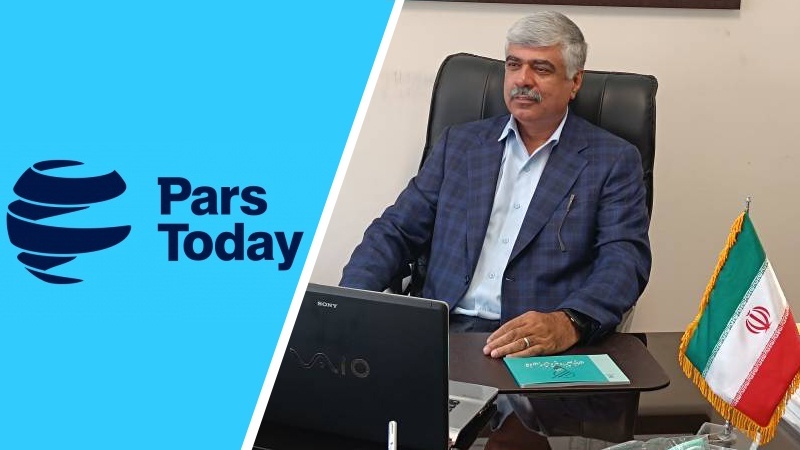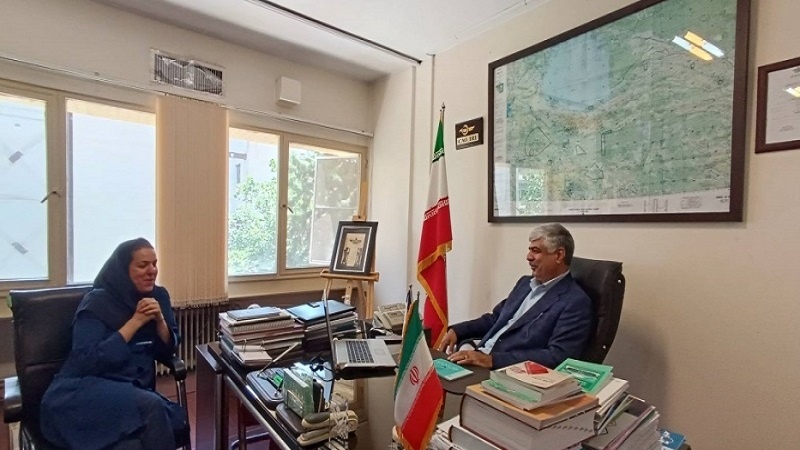Dr. Ekhtiari to Pars Today: Iran is the hub of West Asia in the field of knowledge-based companies
-

Dr. Ekthiari to Pars Today: Iran is the hub of west Asia in the field of knowledge-based companies
Pars Today- Knowledge-based companies are one of the most important pillars of the global economy. These companies, which are shaped based on knowledge and innovation, are broadly active in Iran so that many of them provide good exports to the regional countries and some other countries across the world, particularly in the fields of Nano, medical engineering, medicine, and medical equipment.
Dr. Esfandiar Ekhtiari, representative of the Iranian Zoroastrians and head of the research and technology committee of the 11th round of the Iranian parliament (Majlis), is the main designer of two important laws supporting the knowledge-based companies in the country (2000 and 2022). He is also the founder of the first techno-center (Eqbal Technological Center) in Yazd and has been titled as the father of knowledge-based economy and the Iranian parks of technology.
The following is the interview of Pars Today journalist, Ms. Atusa Dinyarian, with Dr. Esfandiar Ekhtiari.
Dr. Ekhtiari, what is the purpose of knowledge-based companies in general?
Knowledge-based companies are shaped on the basis of thought and knowledge and in fact these companies turn their thought and idea into action and sell it. As for the knowledge-based economy, we deal with two serious issues of "innovation" and "technology". In this model of the economy, customers pay the price of innovation, hence, it will never end because the thought never ends.
Indeed, in the knowledge-based economy, this poem of the great Iranian poet, Sa'adi is materialized where he says, "He who has knowledge is able." (knowledge and experience beside each other)
When was the thought of knowledge-based companies raised in Iran and when did it become practical?
The knowledge-based economy became practical in Iran nearly in 2001 with the establishment of the first science and technology parks.
In 2000, "the law to support knowledge-based companies and commercialize research" was ratified with 13 articles. the law defined the structure and supportive formats of different companies for knowledge-based companies and parks of science and technology.
According to this law, many knowledge-based companies began their activity, and the former companies, too, were encouraged to further continuation of development of their activities. In 2023, the law was ratified and proclaimed with amendments under the title of "the law for the leap in knowledge-based production".
How is the current situation of knowledge-based companies in Iran?
We have a good experience in this field. In fact, Iran is the hub of the West Asian countries on the issue of knowledge-based companies. At the global level, too, we have a good rank. Many of these companies enjoy good exports and turnover and work in the international arena.

In which issues are we successful in the international arena?
Most of the activities of these companies in our country are in the fields of technology and engineering, medical robots, medical engineering, IT, medicine and Nanotechnology.
Many of the Iranian knowledge-based companies are capable of competition in the fields of medicine, medical engineering, and manufacturing of equipment in the international arena. Now, many of the knowledge-based companies are exporting their products to regional countries and beyond.
Is there any space for the activity of these companies in the fields of humanities and art?
Yes, in any arena where a new thought is produced and this thought can be supplied in an economic activity, a knowledge-based economy has been shaped. In the field of tourism, we can mention the first person who raised the idea of using his house for eco-tourism purposes and earning money, as an example of the knowledge-based economy.
What has been the impact of the American sanctions on the work of the knowledge-based companies?
Sanctions, on the one hand, have been very contributive because many of these companies were shaped and grew on the basis of the domestic gap and the absence of necessary products. For example, during the Coronavirus epidemic, Iran was not allowed to import ventilator devices and these companies designed and made another type of this device. In fact, the conditions of sanctions caused the growth and success of these companies in some of the arenas.
But, as for the damage inflicted by sanctions, these companies are facing with problems in commercial exchanges, especially selling of their products to foreign countries, and they cannot have easy turnover. As a matter of fact, the return of money is done with trouble.
What legal support do knowledge-based companies enjoy in Iran?
Necessary legal supports have been taken into consideration in the approved law. For example, these companies enjoy low-interest loans, tax exemption and so on. In fact, we tried to consider for domestic knowledge-based companies whatever that had been considered for the knowledge-based companies broad.
How do you evaluate the future of the knowledge-based companies?
Iranians have both the necessary intelligence and education. Therefore, knowledge-based companies can work very well, provided that the problem of governmental economy is removed from their course.
As the last question in this part, Dr. how is Iran's situation in terms of knowledge-production in the world?
Iran has one percent of the world population and, with respect to the index of knowledge production, it enjoys one percent of knowledge production in the world. Iran has always stood in the first or second rank in West Asia in terms of knowledge production. One of the indexes of knowledge production is the publication of scientific essays in valid scientific magazines in the world, in which Iran enjoys very good statistics. University indexes, like the number of graduates, are high in Iran. This tendency towards the acquisition of knowledge is honorable, while it is also an opportunity that can be used to develop knowledge-based companies and increase their share in the national economy.
Key phrases: Knowledge production in Iran, Iran sanctions, Iranian knowledge-based companies, religious minorities' situation in Iran, Iran's scientific ability, Iran's scientific status in the world
RM/BK


